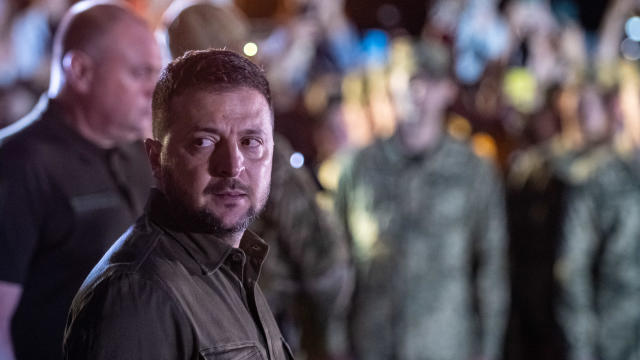
Ukraine says woman held in plot to kill Zelenskyy as airstrikes kill 3
Ukraine's Secret Service says it arrested a woman in connection with an alleged assassination plot against President Volodymyr Zelenskyy.
Watch CBS News
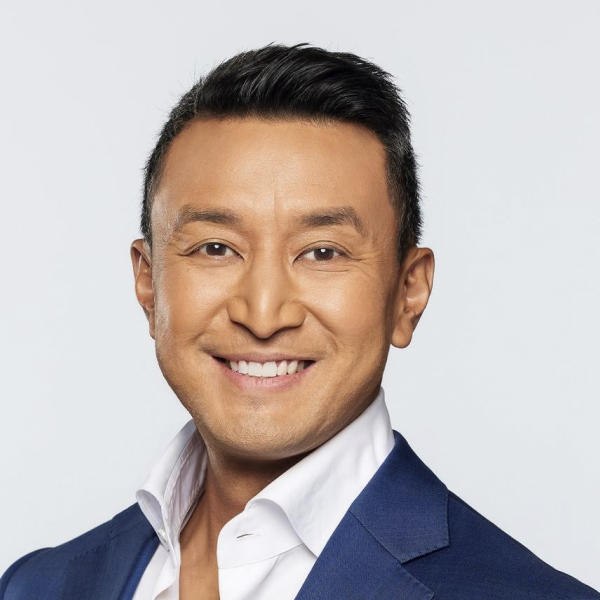
Ramy Inocencio is a CBS News foreign correspondent based in London, covering Europe and the Middle East. He joined the Network in 2019 as CBS News' Asia correspondent, based in Beijing and reporting across the Asia-Pacific, bringing two decades of experience working and traveling between Asia and the United States.
At CBS News, he delivered comprehensive reporting from Asia and was the first U.S. network correspondent to report from Wuhan just as the COVID-19 global pandemic broke out in January 2020. He followed COVID's earliest transmissions from mainland China to Hong Kong, South Korea and Japan and was stranded for half a year in Japan because of international border closures. He eventually reported on the suspension of the Tokyo 2020 Summer Olympics before being allowed to return to China in the fall.
In Hong Kong, Inocencio provided rolling coverage of the entirety of the 2019 pro-democracy protests from the frontlines. He reported from the historic summer storming of Hong Kong's legislature by anti-Beijing protestors on the 22nd anniversary of the territory's return to China from British colonial rule, the unprecedented landslide win of pro-democracy candidates in local elections that December and Beijing's controversial National Security Law in the summer of 2021 that muzzled criticism of the government and China's Communist Party for good. Having covered Hong Kong's Umbrella Revolution protests in 2014, Inocencio gave personal and cultural context to the 2019 protests and knew key leaders of the social movements, many of whom have now been imprisoned including pro-democracy billionaire media tycoon Jimmy Lai and student activist leader Joshua Wong.
In addition, Inocencio also reported from Seoul, South Korea on North Korea's continual launching of ballistic missiles and failed attempts at denuclearization, from White Island, New Zealand and Taal in the Philippines on two volcanic disasters and from China's remote southwest Yunnan province in the search for COVID's origins in bats with he and his team getting chased by angry villagers. He was also barred from returning to mainland China by Beijing, stuck in Hong Kong for much of 2021, because of the worst U.S.-China political tensions since normalization of diplomatic ties in 1979.
Before joining CBS News, Inocencio was a New York-based anchor and correspondent for "Bloomberg Daybreak: Asia." At Bloomberg Television, he covered live the first face-to-face summit between President Donald Trump and Chinese President Xi Jinping from Mar-a-Lago, reported breaking news from Paris on the 2016 Bastille Day terror attack, and traveled across the United States in 2015 for "Wiring the World," his technology innovation feature series. He also anchored for Bloomberg Radio and launched two daily podcasts on U.S.-Asia Pacific economic and financial ties.
Prior to Bloomberg, Inocencio was the Wall Street Journal's deputy Asia-Pacific editor in Hong Kong for video streaming operations and host of the WSJ's weekly technology show "Digits." He also shot, edited and filed one-man band stories on the ground from across Asia, including the devastation in the Philippines following Super Typhoon Haiyan in 2013, Hong Kong's pro-democracy Umbrella Revolution in 2014 and Pope Francis' first visit to the Philippines in 2015. Previously, Inocencio was CNN International's Asia business correspondent based in Hong Kong and CNN's NASDAQ reporter in New York City. He has interviewed notable executives and politicians including J. Crew CEO Mickey Drexler, Cathay Pacific CEO John Slosar, Wikipedia founder Jimmy Wales, U.S. Federal Reserve President James Bullard of St. Louis and Hong Kong Chief Secretary Anson Chan.
Inocencio first worked in China as a U.S. Peace Corps volunteer in 2000 teaching environmental science to college students in rural Sichuan province. He later worked at the World Wildlife Fund in Beijing, as a TV host for CCTV International and as a national drive-time DJ for China Radio International which was his first break into the broadcast world.
A champion of newsroom diversity, internationalism and volunteerism, Inocencio has served as national senior vice president for the Asian American Journalists Association (AAJA) and as global co-lead of Bloomberg's Pan-Asian Community (BPAC). He is a past president of the New York alumni chapter of the East-West Center (EWC), a Hawaii-based think tank that promotes stronger relations and cultural understanding between the U.S., Asia and the Pacific. He is both a 2009 fellowship recipient of the EWC's Asia-Pacific Leadership Program and a 2019 fellowship recipient of the EWC's Asia-Pacific Journalism Fellows program to Taiwan. In 2016, he was named one of the "50 Best Asian Americans in Business" by the New York-based Asian American Business Development Center.
Inocencio, a graduate of the College of William and Mary in Virginia, is the first-born American son of immigrant parents: his father hails from the Philippines and is a U.S Navy retiree, his mother from Singapore and a former flight attendant. Inocencio speaks Mandarin Chinese and is married to Taiwanese classical pianist Dr. Hsin-I Huang. They live in London with their South Korean rescue dog Cooper and Chinese rescue dog Clover.

Ukraine's Secret Service says it arrested a woman in connection with an alleged assassination plot against President Volodymyr Zelenskyy.

Shipping ports, now both Ukraine's and Russia's, have been in the line of fire since Moscow pulled out of a deal to allow Ukrainian grain exports.
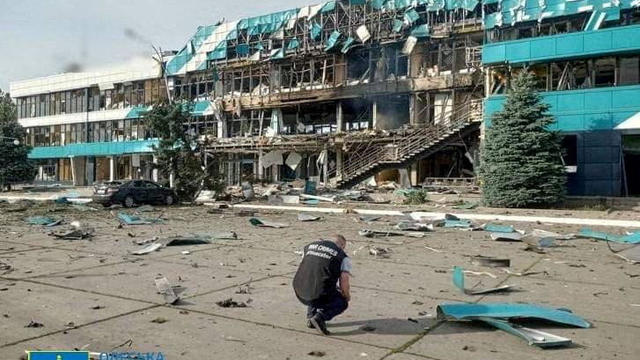
Russia unleashed a drone attack on the Izmail river port, the main route for Ukrainian grain exports with its sea routes blockaded.

By a stroke of luck, Konstantin Gudauskas was able to move freely during the early days of the Ukraine war.
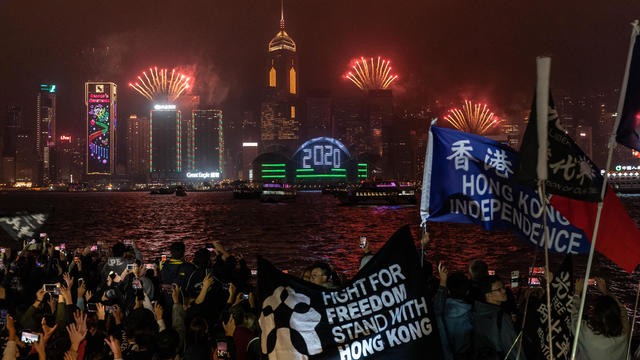
Hong Kong police said the men were detained on "suspicion of conspiracy to collude with foreign forces and commit acts with seditious intent."
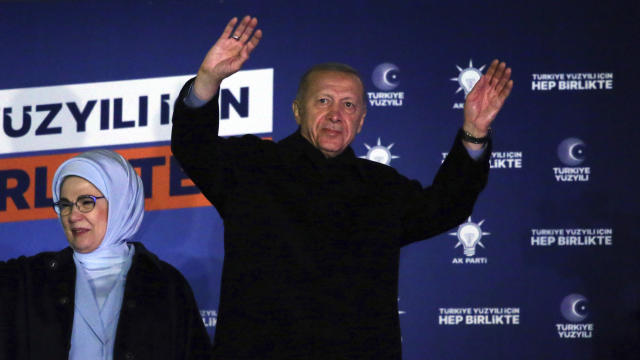
Turkey's long-time leader Recep Tayyip Erdogan managed only a narrow lead in the weekend vote, so another round of ballots will decide the country's fate.
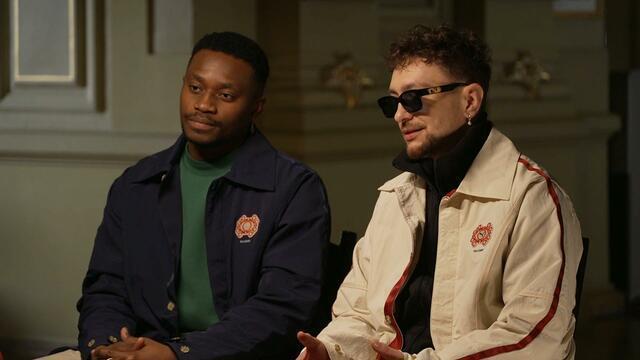
The contest draws 180 million viewers — more than the Super Bowl. And politics has become a part of it. Participating countries traditionally vote favorably for their neighbors and allies.
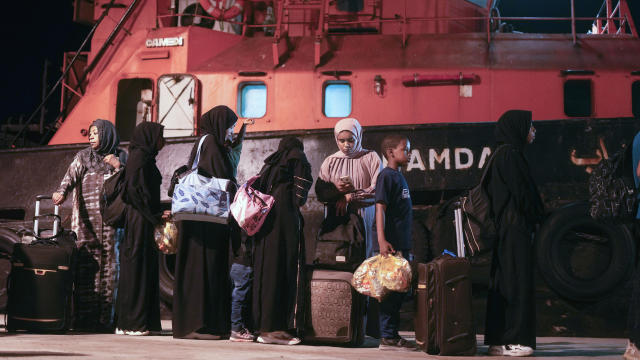
Reefan, 13, told CBS News she was excited to be "going to a safer place," but she's leaving a lot behind, and thousands of others are still desperate to get out.
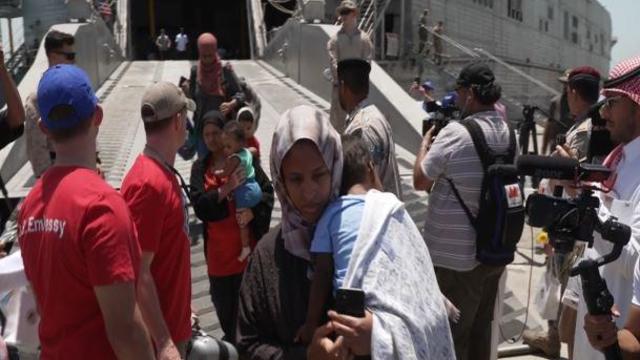
Around 1,000 U.S. nationals have made it out of the country amid fragile ceasefires, including more than 100 aboard a Navy ship that just docked in Saudi Arabia.

With television in its infancy, CBS and NBC fought their first all-out war for supremacy in 1953 to screen the pageantry of the coronation to a post-war America.
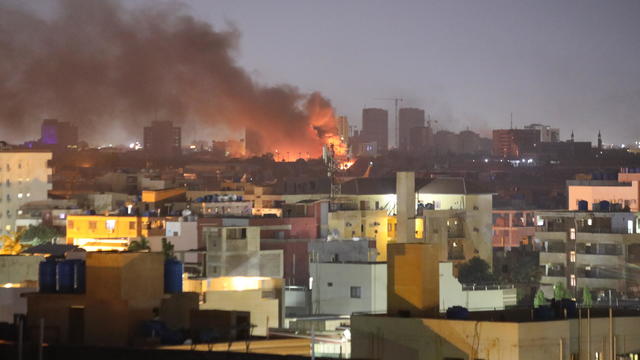
Two generals who united to topple the African nation's fledgling civilian government in 2021 are now fighting each other, with civilians caught in the middle.
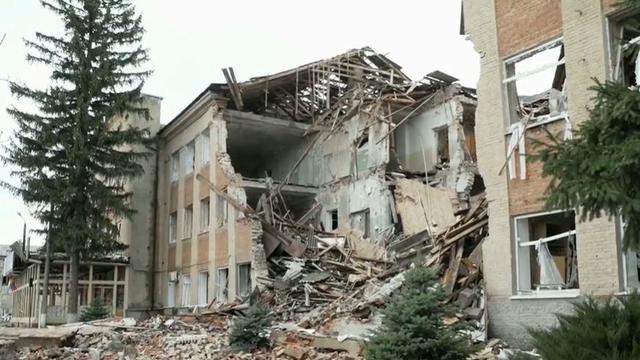
"If Kupyansk will be taken by our enemy again, it won't be just an occupation," said an emergency manager in the rail transport hub.
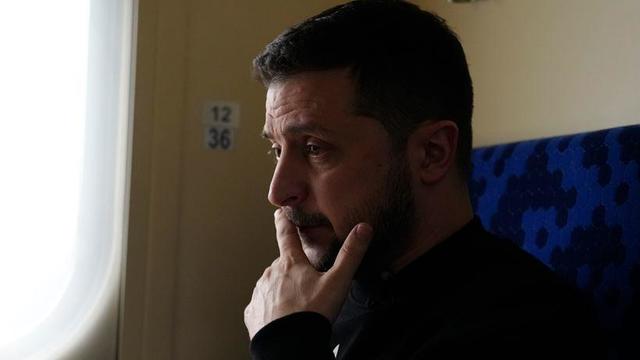
Even as tanks arrived from Europe, Zelenskyy said if Russia is permitted to "smell that we are weak," he could be asked to make a compromise with global implications.
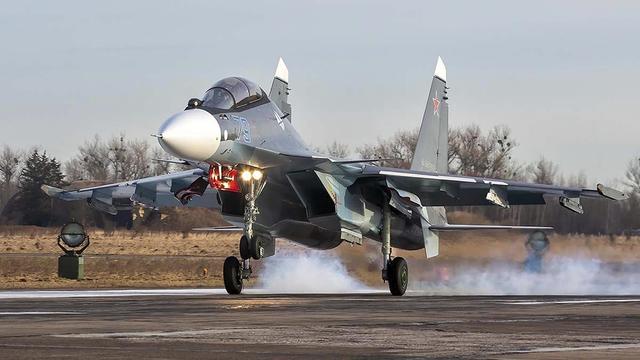
NATO calls Putin's move "dangerous and irresponsible," but the alliance and the White House say there's no indication the Russian leader is about to actually use a nuke.
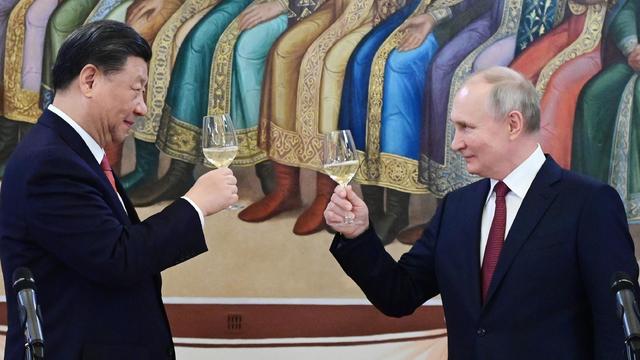
Xi Jinping's visit to Moscow was a big boost for Putin as he faces an arrest warrant for alleged war crimes, but what he probably really wants are rockets and ammunition.